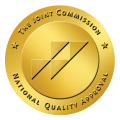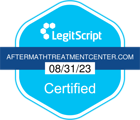For years, medical and psychiatric professionals have been seeking innovative and effective ways to assist patients on their recovery journey. One approach that has gained increased attention in recent years is music therapy. If you or someone you know is struggling with addiction, it’s good to learn more about what music therapy for addiction is and how it can benefit those who are trying to overcome substance use disorders.
At Aftermath Addiction Treatment Center, we offer a variety of addiction programs in Wakefield, MA, including a music therapy program. We have both traditional and alternative therapies to address all of your specific treatment needs, delivered in a supportive, judgment-free environment. If you’re interested in learning more, you can contact our admissions team at 855-795-1226 for more guidance regarding our treatment options.
What Is Music Therapy?
Music therapy involves using music and all the activities associated with it to help improve a person’s physical and emotional well-being. This isn’t a replacement for other types of treatment like counseling or medication, but it’s used alongside these methods to make the recovery process more effective. The whole idea is to use music as a way to help patients express their feelings, understand themselves better, and overall, improve their mental health.
A music therapy session for addiction could involve a range of activities like writing a song about one’s experiences, improvising a tune, performing a piece of music, or just listening to certain types of music. The type of activity chosen depends on what works best for the individual and what they are comfortable with. During these sessions, music therapists guide patients to explore their feelings, emotions, and thoughts, fostering a deeper level of self-understanding and self-expression. Some of the main activities used during music therapy can include:
- Active music making
- Songwriting
- Music improvisation
- Music-assisted relaxation
- Musical games
The power of music therapy in treating addiction lies in its multifaceted nature. It engages the patient’s emotional, cognitive, physical, and social understanding, opening avenues for healing that can complement traditional treatments.
How Does Music Therapy Help With Addiction?
Helps in Expressing and Managing Emotions
Many times, addiction is tied to not being able to handle stress or other emotional problems effectively. Music has a unique power to bring out and express emotions, with certain songs being able to make a person feel happy, sad, excited, or calm. In music therapy, patients are encouraged to use music to explore and express their feelings. This can help them become more aware of their emotions and provide a safe way to let out feelings that may be hard to put into words.
Boosts Motivation
Making music can be an enjoyable activity, and it has the added bonus of making the patient’s brain release a substance called dopamine that produces a feeling of pleasure. This positive feeling can be a healthy alternative to the high that substance use provides and can encourage patients to engage in more positive behaviors.
Encourages Mindfulness and Relaxation
Engaging with music, whether by creating it or listening to it, can be a very immersive experience. It can help patients stay in the present moment and focus on what’s happening right now. This is what mindfulness is all about. Being more mindful can help reduce cravings and manage stress, both of which are crucial in the recovery process. Plus, soothing music can help people relax and bring down their stress and anxiety levels.
Builds Social Connections
Addiction can often make people feel isolated and damage their relationships. Group sessions in music therapy provide a space where patients can interact with others in a non-judgmental, collaborative environment. By engaging in group activities like performances or songwriting, patients can feel a sense of belonging and learn how to connect better with others.
Improves Cognitive Skills
Regular substance use can harm important cognitive functions like memory and decision-making. Music activities, especially those that involve learning an instrument or remembering song lyrics, can serve as a mental workout to help improve these skills. Better cognitive abilities can assist patients in making healthier choices and sticking to their treatment plan.
While music therapy is not a standalone solution for addiction, its inclusion in a comprehensive treatment plan can provide additional support for individuals on their path to recovery.
Call Aftermath Addiction Treatment Center Today
A music therapy program can be a great supplement to primary treatments. A comprehensive addiction treatment program should also consider the patient’s social, cognitive, and emotional health and music therapy can shore up any gaps in traditional treatment. If you’re looking for a music therapy program, then look no further than Aftermath Addiction Treatment Center. Our friendly and experienced staff are waiting to help you find the best program for your recovery. Contact us at 855-795-1226 today to learn more.




